Hypothyroidism, Hyperthyroidism and Common Thyroid Problems

The thyroid gland is a small, butterfly-shaped organ in your throat, and it is very important to your health and well-being. The thyroid is part of the endocrine system, which is essentially a collection of glands. Glands produce hormones that regulate mood and various functions in the body.
Thyroid hormones impact a host of vital body functions, including heart rate, skin maintenance, growth, temperature regulation, fertility and digestion.
FUNCTIONS OF THE THYROID HORMONES
The thyroid gland, in particular, controls just about every cell in the human body. It secretes hormones calcitonin, T4 (thyroxine, or tetraiodothyronine) and T3 (triiodothyronine) into the bloodstream. The hormones control the rate at which cells and organs turn nutrients into energy and the amount of oxygen cells use.
In this way, the thyroid gland is the body's master metabolic control center. Brain, heart and kidney function, as well as body temperature, growth and muscle strength — and much more — are at the mercy of thyroid function.
The thyroid also regulates the brain and nerve function and development, plus the function of the skin, hair, eyes, heart and intestines.
The thyroid works in conjunction with the pituitary gland. The pituitary gland regulates how much hormones the thyroid releases.
The thyroid gland produces a large amount of T4, but that hormone is not very active. T4 is converted to T3 via an enzyme that removes one of its iodine atoms. Although T3 is much more potent than T4, there is much evidence to support that people with hypothyroidism feel much better when they receive a combination treatment that includes a small amount of T3 with the commonly prescribed T4.
COMMON THYROID PROBLEMS
Thyroid conditions affect an estimated 20 million Americans, and as many as 60 percent of people with a thyroid disease don't know they have a problem, according to the American Thyroid Association.
Women are particularly at risk for a thyroid issue. One in eight women will develop a thyroid disorder during the course of their lives — that's five to eight times the rate in men.
Five common disorders of the thyroid are Hypothyroidism, Hyperthyroidism, Hashimoto’s Thyroiditis, Goiter, and Thyroid Nodules.
HYPOTHYROIDISM
Hypothyroidism is defined medically as a low T4 (thyroxine) and perhaps a low T3 level (triiodothyronine). It is an extremely common health condition, especially in women over the age of about 30.
Symptoms of hypothyroidism. Common symptoms include fatigue, dry skin and hair, brittle hair, hair loss, split ends of the hair, splitting, brittle or broken fingernails, weight gain, cold intolerance, a pasty skin color, and often some feelings of apathy or depression.
Causes. The cause, in most cases, we find, involves low iodine and the buildup of bromine, fluorine and chlorine compounds that damage the functioning of the thyroid gland, perhaps by an oxidant mechanism. Copper and mercury may also be excessive in the body.
Nutrient deficiencies such as low selenium, low zinc, low manganese and others may also contribute to the problem. In some cases, the thyroid is fine, but the transport, conversion and utilization of thyroid hormone are abnormal.
When viewed this way, one can see why the accepted medical and naturopathic method of just giving replacement thyroid hormones to those with low circulating levels of T3 or T4 is inadequate and often incorrect. Replacement hormones may address the symptom, but they do nothing for the cause of the problem. It is at best a partial and artificial solution.
Hypothyroidism diagnosis
Your doctor will perform blood tests to measure your TSH and thyroid hormone levels. A high TSH level and low thyroxine level could mean that your thyroid is underactive. These levels could also indicate that your pituitary gland is releasing more TSH to try to stimulate the thyroid gland to make its hormone.
HYPERTHYROIDISM
In hyperthyroidism, the thyroid gland is overactive. It produces too much of its hormone. Hyperthyroidism affects about 1 percent of women. It’s less common in men.
Graves’ disease is the most common cause of hyperthyroidism, affecting about 70 percent of people with an overactive thyroid. Nodules on the thyroid — a condition called toxic nodular goiter or multinodular goiter — can also cause the gland to overproduce its hormones.
Excessive thyroid hormone production leads to symptoms such as:
Restlessness, nervousness, racing heart, irritability, increased sweating, shaking, anxiety, trouble sleeping, thin skin, brittle hair and nails, muscle weakness, weight loss, bulging eyes (in Graves’ disease)
Hyperthyroidism diagnosis
A blood test measures levels of thyroid hormone (thyroxine, or T4) and thyroid-stimulating hormone (TSH) in your blood. The pituitary gland releases TSH to stimulate the thyroid to produce its hormones. High thyroxine and low TSH levels indicate that your thyroid gland is overactive.
HASHIMOTO’S THYROIDITIS
Hashimoto’s thyroiditis is also known as chronic lymphocytic thyroiditis. It’s the most common cause of hypothyroidism in the United States, affecting about 14 million Americans. It can occur at any age, but it’s most common in middle-aged women. The disease occurs when the body’s immune system mistakenly attacks and slowly destroys the thyroid gland and its ability to produce hormones.
Some people with mild cases of Hashimoto’s thyroiditis may have no obvious symptoms. The disease can remain stable for years, and symptoms are often subtle. They’re also not specific, which means they mimic symptoms of many other conditions. Symptoms include:
Fatigue, depression, constipation, mild weight gain, dry skin, dry, thinning hair, puffy face, heavy and irregular menstruation, intolerance to cold, enlarged thyroid, or goiter
Hashimoto’s diagnosis
Testing the level of TSH is often the first step when screening for any type of thyroid disorder. Your doctor might order a blood test to check for increased levels of TSH as well as low levels of thyroid hormone (T3 or T4) if you’re experiencing some of the above symptoms. Hashimoto’s thyroiditis is an autoimmune disorder, so the blood test would also show abnormal antibodies that might be attacking the thyroid.
GOITER
Goiter is a noncancerous enlargement of the thyroid gland. The most common cause of goiter worldwide is iodine deficiency in the diet. Researchers estimate that goiter affects 200 million of the 800 million people who are iodine-deficient worldwide.
Conversely, goiter is often caused by — and a symptom of — hyperthyroidism in the United States, where iodized salt provides plenty of iodine.
Goiter can affect anyone at any age, especially in areas of the world where foods rich in iodine are in short supply. However, goiters are more common after the age of 40 and in women, who are more likely to have thyroid disorders. Other risk factors include family medical history, certain medication usage, pregnancy, and radiation exposure.
There might not be any symptoms if the goiter isn’t severe. The goiter may cause one or more of the following symptoms if it grows large enough, depending on the size:
Swelling or tightness in your neck, difficulties breathing or swallowing, coughing or wheezing, hoarseness of voice.
Goiter diagnosis
Your doctor will feel your neck area and have you swallow during a routine physical exam. Blood tests will reveal the levels of thyroid hormone, TSH, and antibodies in your bloodstream. This will diagnose thyroid disorders that are often a cause of goiter. An ultrasound of the thyroid can check for swelling or nodules.
THYROID NODULES
Thyroid nodules are growths that form on or in the thyroid gland. About 1 percent of men and 5 percent of women living in iodine-sufficient countries have thyroid nodules that are large enough to feel. About 50 percent of people will have nodules that are too tiny to feel.
The causes aren’t always known but can include iodine deficiency and Hashimoto’s thyroiditis. The nodules can be solid or fluid-filled.
Most are benign, but they can also be cancerous in a small percentage of cases. As with other thyroid-related problems, nodules are more common in women than men, and the risk in both sexes increases with age.
Most thyroid nodules don’t cause any symptoms. However, if they grow large enough, they can cause swelling in your neck and lead to breathing and swallowing difficulties, pain, and goiter.
Some nodules produce thyroid hormone, causing abnormally high levels in the bloodstream. When this happens, symptoms are similar to those of hyperthyroidism and can include:
High pulse rate, nervousness, increased appetite, tremors, weight loss, clammy skin
On the other hand, symptoms will be similar to hypothyroidism if the nodules are associated with Hashimoto’s disease. This includes:
Fatigue, weight gain, hair loss, dry skin, cold intolerance
Thyroid nodules diagnosis
Most nodules are detected during a normal physical exam. They can also be detected during an ultrasound, CT scan, or an MRI. Once a nodule is detected, other procedures — a TSH test and a thyroid scan — can check for hyperthyroidism or hypothyroidism. A fine needle aspiration biopsy is used to take a sample of cells from the nodule and determine whether the nodule is cancerous.
WHY ARE THYROID PROBLEMS COMMON TODAY?
Thyroid imbalances are one of the most common conditions in the Western world today. Reasons for this include:
1. Iodine antagonists in the environment. This is a very serious problem that few talk about. However, the water and food supply are loaded with halogens, which are elements that can replace iodine in the thyroid gland. The chemicals are fluorides, chlorides, and bromides. These elements compete with iodine for absorption and utilization in our bodies. When they replace iodine, the thyroid gland simply stops working properly.
2. Copper and mercury toxicity in almost everyone. According to the research of Dr. Paul Eck and many others, copper and mercury can easily interfere with the functioning of the thyroid gland. They may do this by antagonizing or opposing the action of zinc, manganese and selenium, or perhaps by other mechanisms.
Unfortunately, copper and mercury toxicity are almost universal today. Mercury gets into our bodies due to mercury in dental fillings, mercury in all fish except perhaps very small fish like sardines, and in some cases other sources of mercury.
Copper imbalance is due to many factors. Among the most important are adrenal insufficiency, vegetarian-type diets, zinc deficiency, stress and a few others.
3. Nutrient deficiencies. These include low levels in our food of bioavailable zinc, selenium, iodine, manganese and other vital minerals that are needed for proper thyroid functioning.
4. Autonomic system imbalances. This cause is related to stress of a certain type.
5. Other stress. Stress can cause many cases of thyroid imbalance. The stress can be physical, emotional, financial, structural or due to traumas such as rape or beatings. All of these can damage the thyroid gland.
Sources:
www.livescience.com
www.healthline.com
www.drlwilson.com
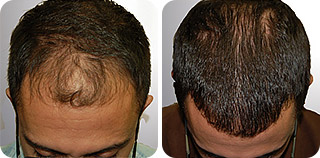 Mr. H A, Aged 28After 11 Months
Mr. H A, Aged 28After 11 MonthsI had dandruff since the beginning of the time, and unfortunately, in the past years, hair loss was added to it, and the front part of my head was out of hair. After treatment, dandruff and hair loss were wholly gone, and hair on the front part of my head started to grow again.
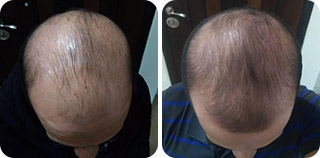 Mr. M S, Aged 35After 6 Months
Mr. M S, Aged 35After 6 MonthsAs you can see in my photo, I lost almost all my hair. After 6 months with Dr. Nasirzadeh's program, a lot of thin hair is growing on my head. I am very happy and hope that more hair will grow as I continue my treatment. Thanks to Dr. Nasirzadeh.
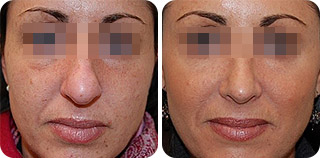 Ms. M A, Aged 42After 3 Months
Ms. M A, Aged 42After 3 MonthsWith Dr. Nasirzadeh’s recommendation, first, I did a blood test then I got my program. He advised me some supplements, creams and solutions. The spots on my face have faded, the puff under my eyes are also gone and in general, my skin is younger and brighter. I’m completely satisfied with the treatment.
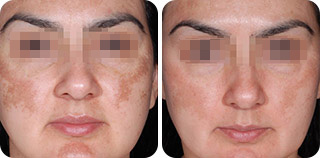 Ms. Zh K, Aged 29After 3 Months
Ms. Zh K, Aged 29After 3 MonthsThe supplements and creams that Dr. Danial recommended to me had a great effect on my skin, I’m satisfied with the result and I will complete my treatment with him for the desired result. Special thanks, doctor.
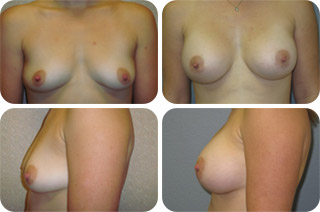 Ms. J, Aged 27After 3 Months
Ms. J, Aged 27After 3 MonthsA friend of mine introduced Dr. Nasirzadeh to me. Some blood tests were needed to begin the program, and I sent him the blood test reports. He sent me a program that included two supplements, one multivitamin and the herbal Breast Enhancement, also a moisturizer to prevent skin cracks. I was advised to take them for 3 to 4 months until my breasts reached the desired size. I am now at the end of the third month. My breasts have become bigger and are in better shape.
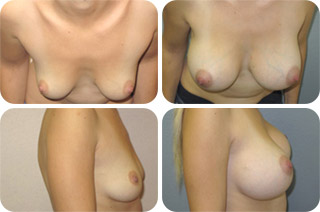 Ms. Z, Aged 25After 3 Months
Ms. Z, Aged 25After 3 MonthsDr. Nasirzadeh gave me a great program. One cream and two supplements recommended based on the results of hormonal tests. The result was what I wanted and I'm glad that I was under his treatment.
 Mr. E J, Aged 34
Mr. E J, Aged 34I had chronic sinusitis for many years, and I had to take antibiotics for that. My problem always recurred in the cold season, and it was never completely resolved until I started treatment with Dr. Nasirzadeh. My program included a number of supplements and recommendations that after a few weeks not only completely cured my sinusitis but also increased my energy level. Thank you from the bottom of my heart, Dr. Nasirzadeh
 Ms. R Y, Aged 32
Ms. R Y, Aged 32I got mild Covid-19 and isolated myself at home. I felt very tired, and my body ached, so I took an online program from Dr. Nasirzadeh to boost my immune system. After three days, I feel better, and the dizziness and other symptoms have decreased. I also took two separate programs for my parents to strengthen their immune system too.
